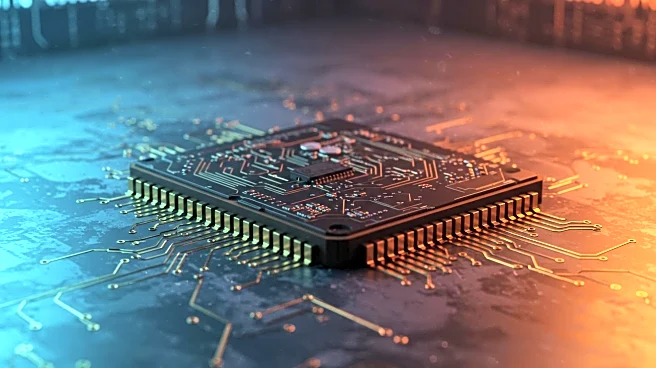What's Happening?
President Trump has reversed a previous ban on the sale of Nvidia's H20 chips to China, opting for a deal that allows these sales in exchange for a 15% revenue share to the U.S. government. This decision marks a significant shift from earlier restrictions aimed at preventing China from acquiring advanced AI technology. Despite the H20 chip being considered obsolete compared to other models, its sale is significant amidst ongoing U.S.-China trade tensions. The deal has sparked debate, with critics arguing that it may compromise U.S. national security and economic interests in AI development.
Why It's Important?
The reversal of the ban on Nvidia's H20 chip sales to China is crucial in the context of U.S.-China trade relations and technological competition. By allowing these sales, the U.S. government potentially opens up revenue streams but also risks enabling China to advance its AI capabilities. This decision could impact U.S. industries involved in AI and technology, as well as influence public policy regarding trade and national security. Stakeholders in the tech industry may benefit from increased sales, while national security experts express concerns over the implications for U.S. technological superiority.
What's Next?
The decision may lead to further negotiations and adjustments in U.S.-China trade policies, particularly concerning technology exports. Political leaders and industry stakeholders are likely to react, with potential calls for stricter regulations or alternative strategies to safeguard national interests. The U.S. government may also face pressure to clarify its stance on technology exports and national security, possibly leading to new legislative measures or executive actions.
Beyond the Headlines
This development highlights the ethical and strategic dilemmas faced by governments in balancing economic interests with national security. The decision could trigger long-term shifts in U.S. trade policy and influence global perceptions of U.S. commitment to technological leadership. It also raises questions about the role of government in regulating technology exports and the potential consequences for international relations.









